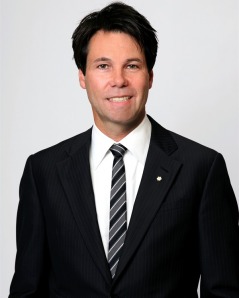On Monday, Don Valley West MPP Kathleen Wynne became the second person to enter the Ontario Liberal leadership race. In doing so, she also became the second openly gay person to enter the Ontario Liberal leadership race.
Toronto Centre MPP Glen Murray, also an openly gay politician, formally entered the race Sunday.
Although more candidates are expected to throw their hats in the race, there is a real chance that Ontario’s first openly gay premier will be elected on January 25.
Ontario’s first openly lesbian MPP, Wynne was first elected in 2003 after serving as a trustee on the Toronto District School Board. Wynne served as the minister of aboriginal affairs and municipal affairs and housing in Dalton McGuinty’s cabinet until she resigned last week in anticipation of running.
These candidates’ personal lives are not likely to trump the politics of the election, and that is a good thing, but a politician’s sexual orientation can still affect expectations of their policies.
In an interview with LGBTQ newspaper Xtra, Murray was asked whether or not he would challenge the public funding of Catholic school boards. The Catholic school system has been under fire by the LGBTQ community since its public opposition of Bill 13, the Accepting Schools Act, last spring. The bill, one of the few pieces of legislation that passed during the last session of Parliament, gives students the right to form Gay-Straight Alliances in schools. It was supported by all parties.
The Catholic school boards’ heavy opposition to the bill led some to question the continuation of public funding to the Catholic school system, which is ingrained in Ontario’s constitution. Murray told Xtra that he will not be quick to impose change on the school system.
“We as gay and lesbian people, even though we disagree with some of the ways Catholics are using their constitutional rights, we should be loathe to undermine them.”
Murray said he fought hard for gay and lesbian rights since he was a teenager and that he sees the erosion of anyone’s rights as dangerous.
Murray also said that now that he is no longer in cabinet, he is free to speak up more about the treatment of gay and lesbian youth by Catholic schools, and that he intends to do so.
Green Party of Ontario leader Mike Schreiner is one of the few politicians that is a vocal opponent of the Catholic school system, although his qualms are more fiscally-based. Schreiner does not hold a seat in the legislature.
Wynne also expressed no interest in reforming Ontario’s divided school system, saying instead that she would work to improve relations with teachers that were shattered with the passage of McGuinty’s Bill 115 earlier this fall. Even from within cabinet, Wynne was a vocal opponent of the bill.
In her leadership speech, Wynne spoke about the need for parties to seek consensus on issues and listen to arguments from both sides of the table.
“As leader of the party and as Premier I will continue to seek the common ground of the public agenda. It requires openness, transparency, honesty and good faith. I think I’ve demonstrated my commitment to those values in my public and in my private life,” Wynne said.
In his interview with Xtra, Murray was critical of the amount of attention his sexual orientation has received, particularly from Toronto media, in the past few weeks.
“The word gay, lesbian, queer has come up more in the last three weeks than it has in my entire political career and it’s interesting to me that the only people who have raised this are some of the folks in the broader Toronto media, which I found a little comical because generally those of us in Toronto think that we are a little more sophisticated and open-minded than the rest of the country and I’m not sure that’s true.”
Sexual orientation matters, not because it affects a politician’s ability to get elected or win a leadership race, but because of the set of political expectations it assumes. Reformation of the Catholic school system would not likely have come up within the first few days of this race, except that it is an issue that is important to people in the candidates’ broader communities.
If both of these candidates were from rural ridings, or French-speaking, or under 30, or of racial minorities, the media would be talking about that comparison and issues that matter to those implied communities as well.
When asked if he thought sexuality matters in the leadership campaign, Murray smiled and said: “Of course sexuality matters. Sexuality always matters; it’s one of the great things about being alive.”
Citizenship and Immigration Minister Charles Sousa and former cabinet minister Sandra Pupatello are both expected to enter the race. The deadline for entrants is November 23.
Check out Xtra’s full interview with Glen Murray here.






